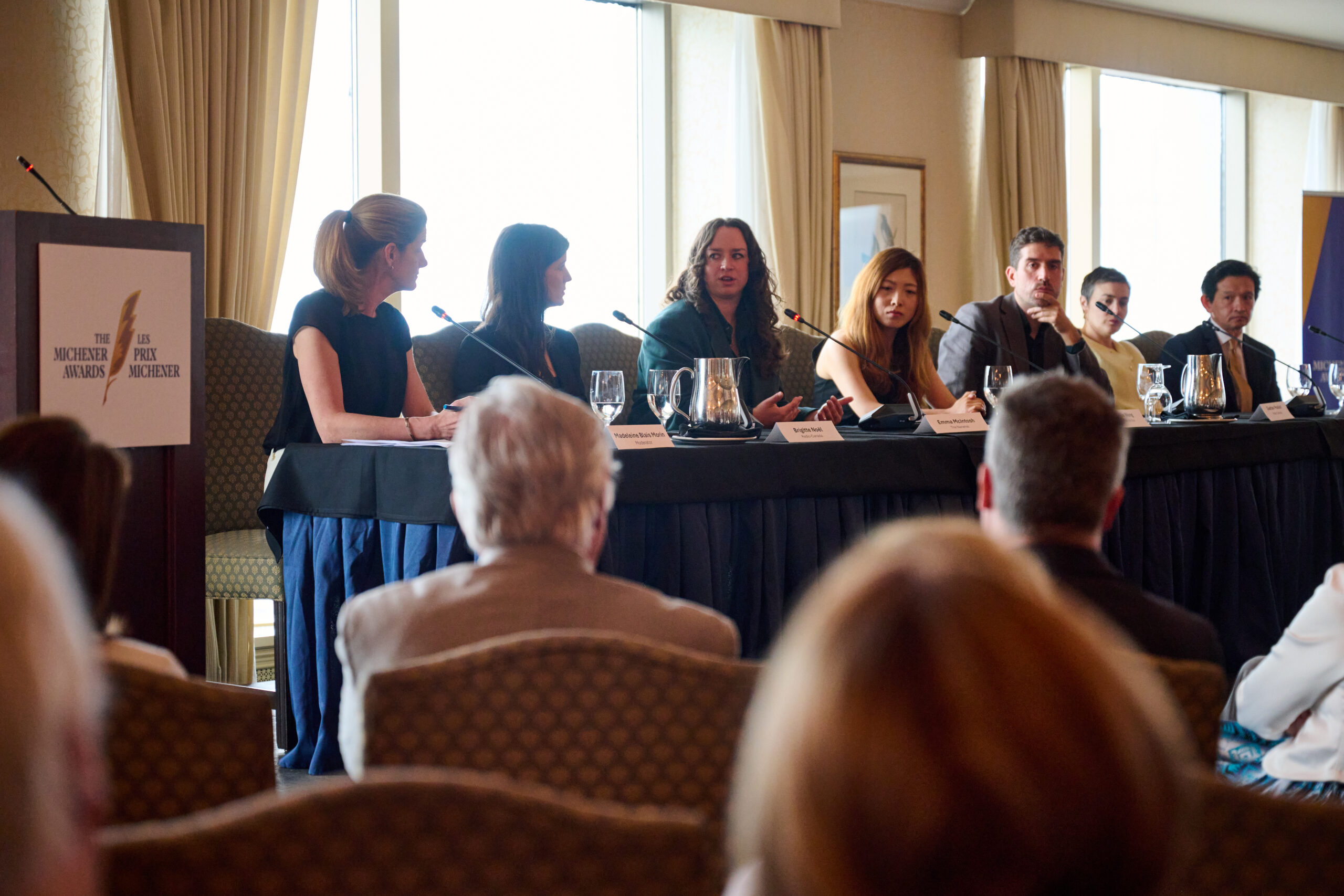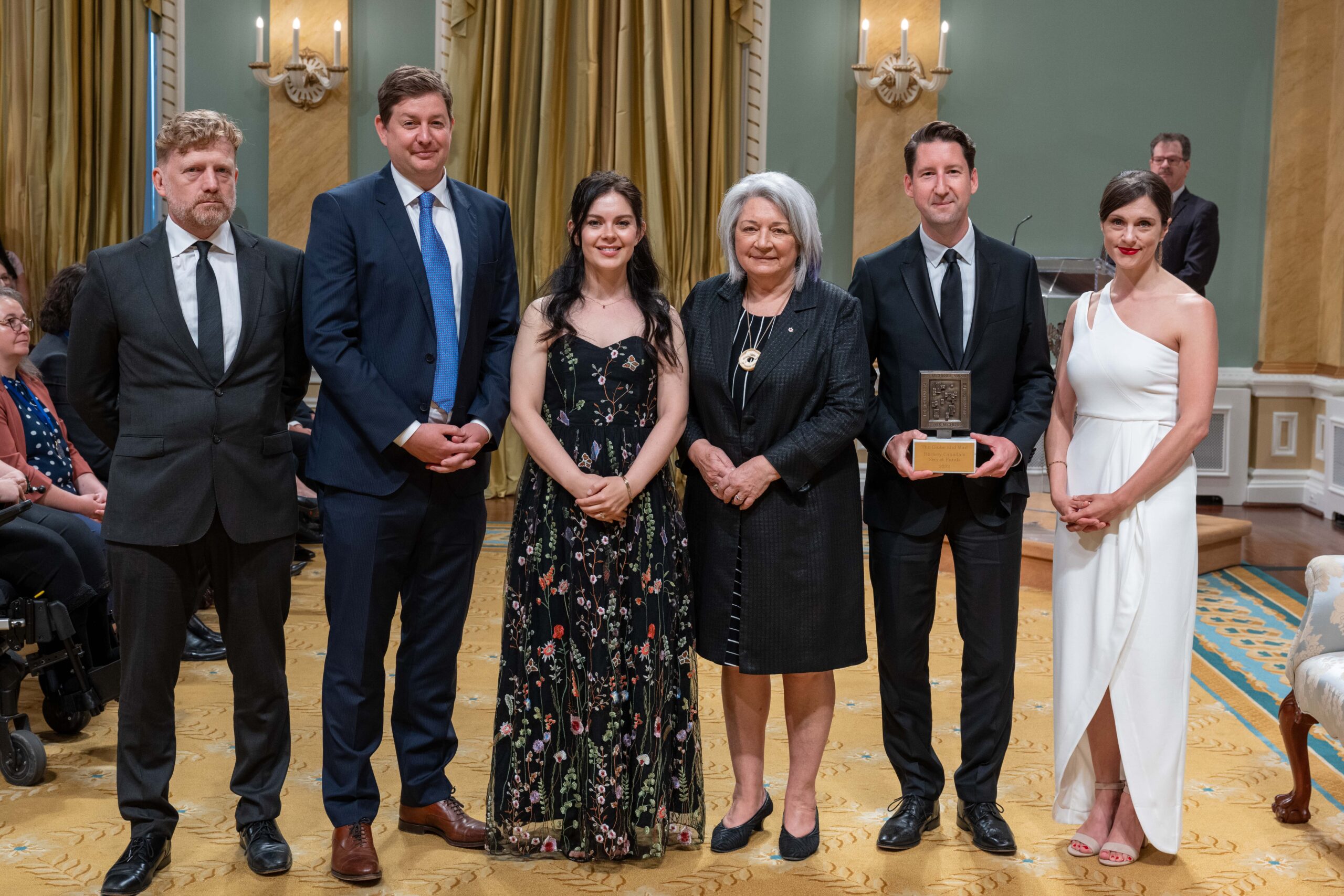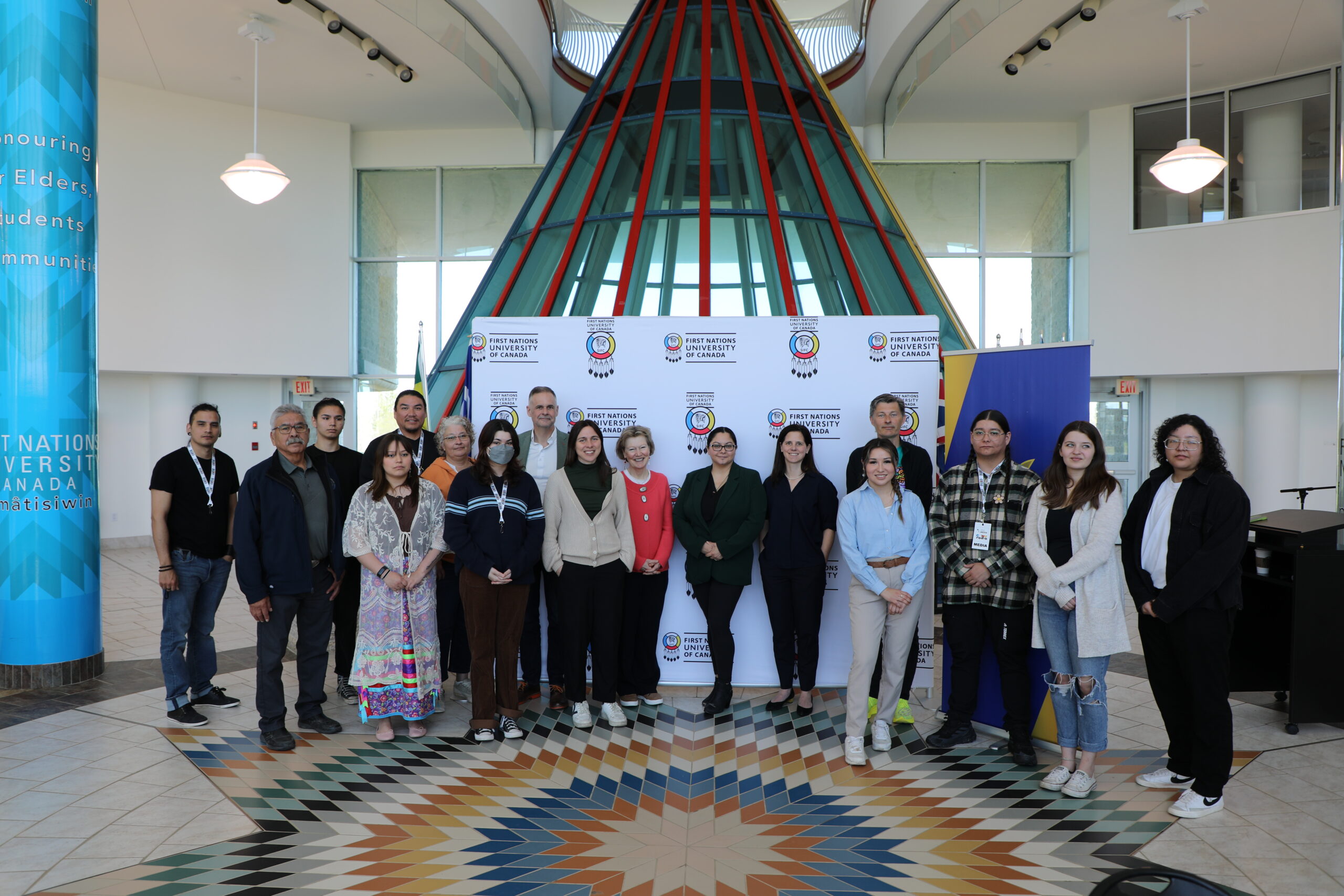To showcase the unique perspectives and experiences of 2023 Michener Awards finalists, the Michener Awards Foundation (MAF) hosted a discussion panel on Journalism in the Digital Age at the Rideau Club on June 14th.
Panel members included:
Ian Young, The Canadian Press (Michener finalist for: A ‘predator’ at CSIS)
Angela Pacienza, The Globe and Mail (Michener finalist for: Montreal fire safety)
Emma McIntosh, The Narwhal (Michener finalist for: Ontario Greenbelt Scandal)
Sheila Wang, The Toronto Star (Michener finalist for: Ontario Greenbelt Scandal)
Brigitte Noël, Radio-Canada (Michener finalist for: The Girls around Robert Miller)
Gaétan Pouliot, Radio-Canada (Michener finalist for: The dark side of Neptune)
After an opening statement from His Excellency Whit Fraser, the panelists reflected upon the role of journalism in the face of an information ecosystem polluted by misinformation, toxic discourse, and eroding trust. Guiding this discussion was MAF board member Madeleine Blais-Morin, who also serves as the head of the parliamentary office of Radio-Canada in Ottawa.
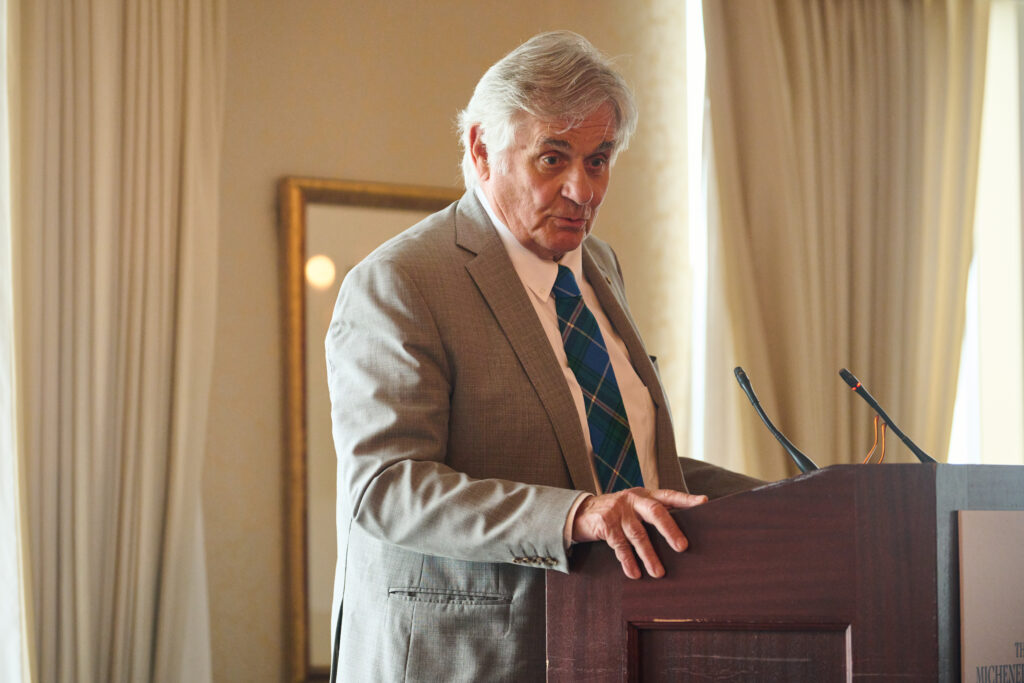
Photo: Kamara Morozuk
In discussing her work covering Canadian conspiracies before the Robert Miller project, Brigitte Noël detailed how her reporting propelled her into an ecosystem of online harassment, including personal attacks and hour-long videos attempting to invalidate her work. In particular, she noted how traditional journalism school does not prepare you for the onslaught of toxic discourse that reporters experience today.
On a similar note, Emma McIntosh divulged her experience receiving hostile pushback from politicians following the release of her investigative work and discussed the topic of a newsroom’s role in ensuring its journalists’ personal safety while praising the Narwhal’s implementation of digital protections for its team. Sheila Wang, another journalist who contributed to the Ontario Greenbelt Scandal reporting, detailed her navigation of difficulties she’s faced when balancing the tension between the responsibility to report and concerns for personal safety when covering high-risk events.
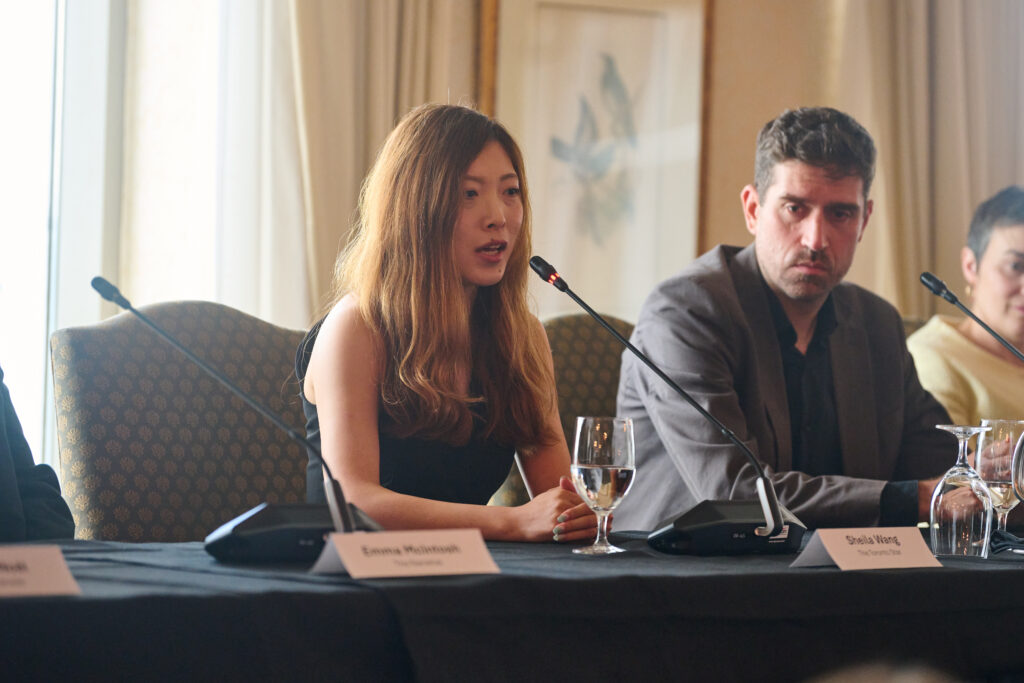
Photo: Kamara Morozuk
Building upon previous points, Angela Pacienza highlighted The Globe and Mail’s uncompromising policies for protecting individual safety while illustrating the great lengths that newsrooms must now go to keep their staff safe. Additionally, when asked about journalism’s position in relation to the rise of AI and misinformation, she emphasized the value of human-centered storytelling by noting that when AI comes at us, being human will be our best defense.
On the subject of eroding trust, Ian Young discussed using anonymous sources, a rarity at the Canadian Press, and dealing with sources who felt unable to go to the police and needed to remain anonymous due to being forbidden by law from identifying themselves or other covert officers. He detailed the careful process behind how Darryl Greer, the main reporter on the case, built trust with their sources. He also explained how the Canadian Press built trust with their audience while protecting the officers’ identities.
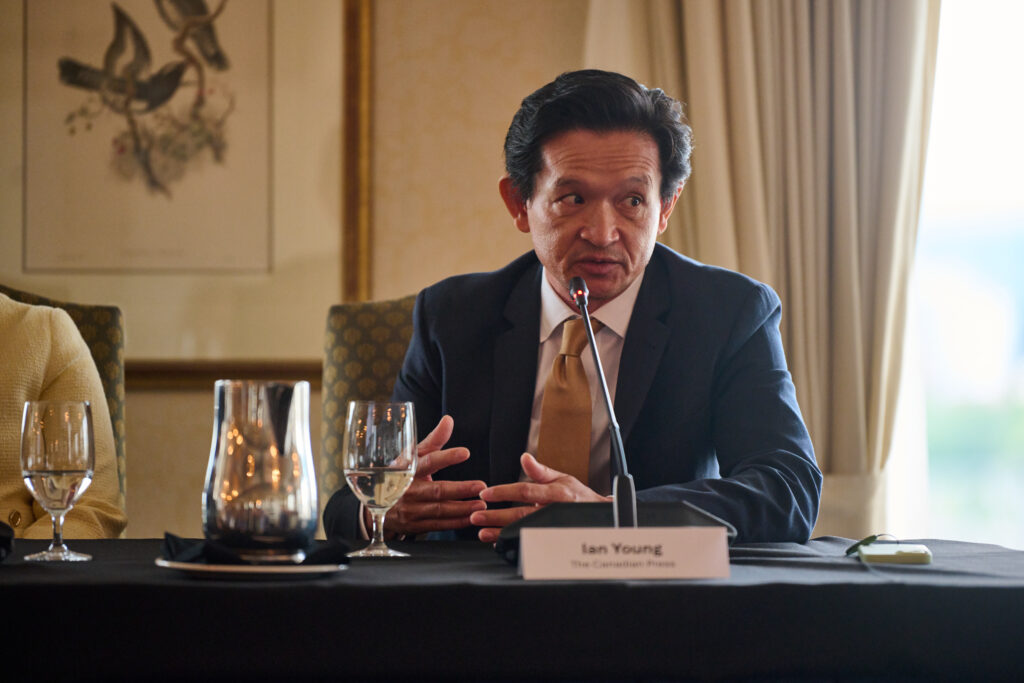
Photo: Kamara Morozuk
Continuing the conversation on protecting sources, Gaétan Pouliot noted that those who are featured in a story often pursue the journalists telling it, with the aim of limiting the release of information and uncovering the sources who shared it. In particular, he detailed the arduous process behind covering “The dark side of Neptune”, which despite its intensity yielded rewarding impacts, such as employees from Neptune personally thanking him for uncovering the truth in an area so central to their lives.
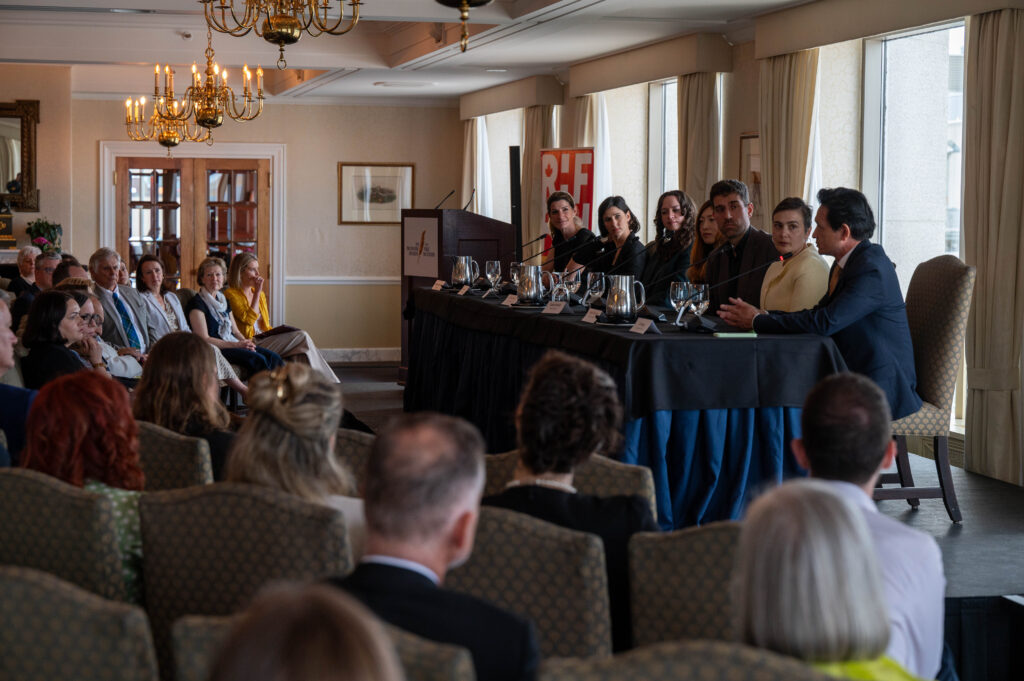
Photo: Kamara Morozuk
With closing remarks from Michener Awards Foundation President Margo Goodhand, the panel proved to be an insightful and revelatory discussion about the state of Canadian journalism today. The event, which took place before the official Michener Awards Ceremony at Rideau Hall, was hosted by the Michener Awards Foundation in partnership with the Rideau Hall Foundation. To learn more about the Michener Awards, click here. To watch the Official Awards Ceremony at Rideau Hall, visit this link.
